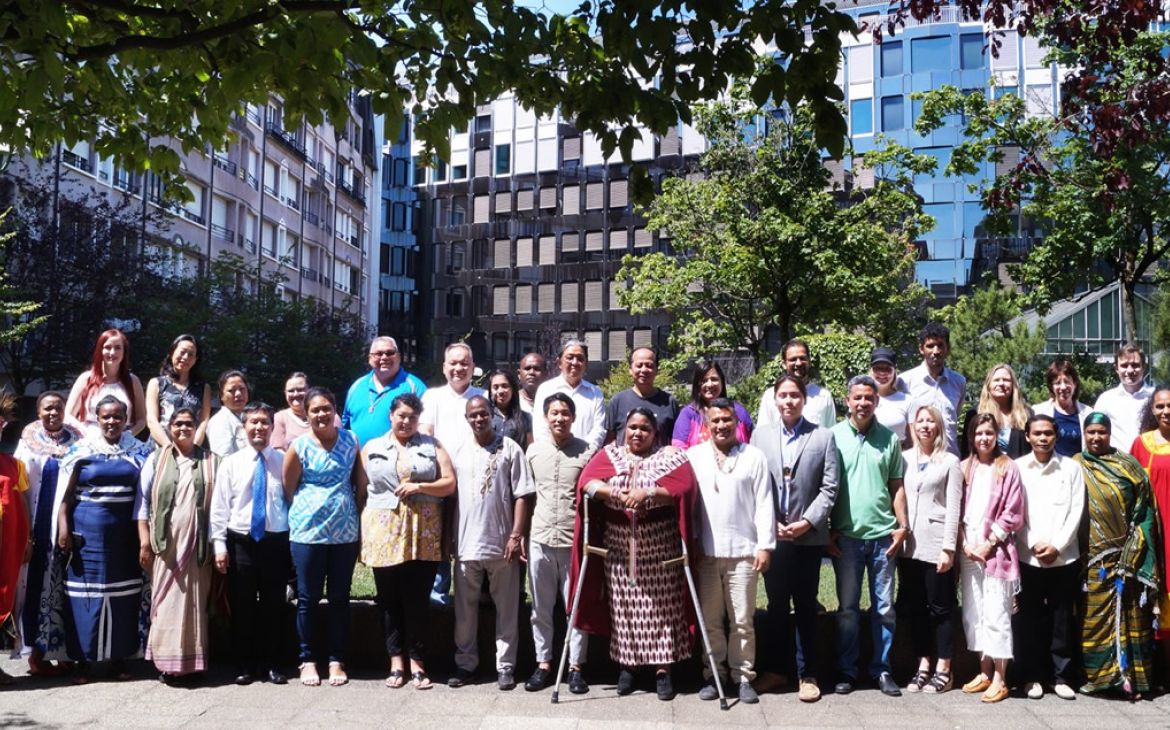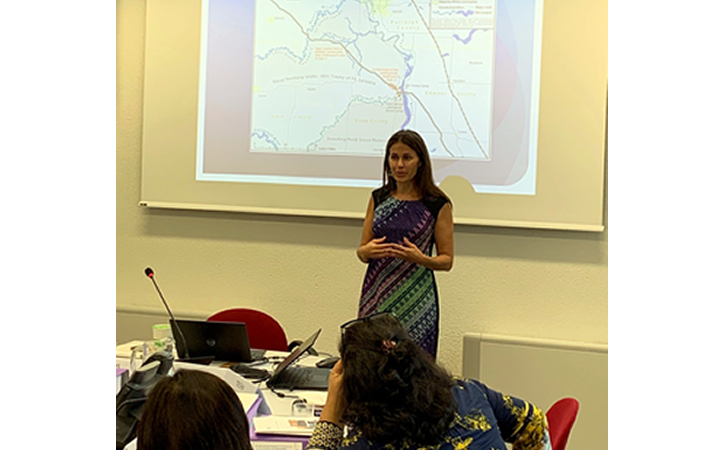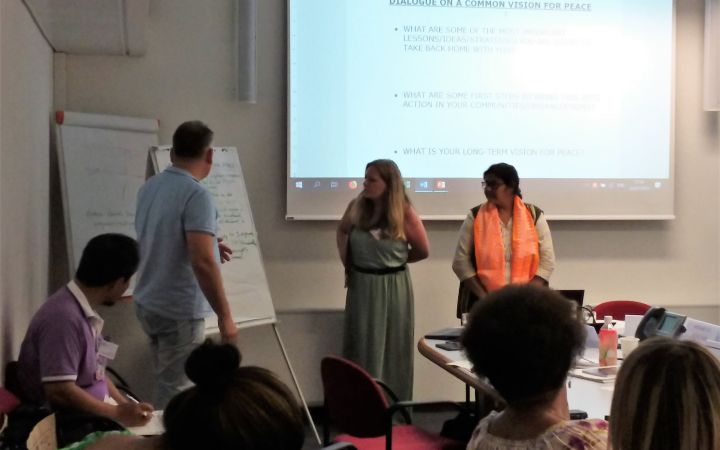September 2019, Geneva, Switzerland - Thirty indigenous representatives from Africa, Asia, Europe, the Arctic, the Americas and the Pacific took part in the 2019 UNITAR Training Programme to Enhance the Conflict Prevention and Peacemaking Capacities of Indigenous Peoples’ Representatives. The intensive international programme provided advanced training in conflict analysis, dialogue, principled negotiation and reconciliation processes to indigenous representatives and leaders working to advance the rights and well-being of their peoples.
Indigenous women and men from diverse backgrounds working on land rights, and resource conflicts, environmental protection, governance and traditional knowledge, leadership in indigenous women’s networks, and youth caucuses, as well as advocacy to ensure accessibility for indigenous women and men with disabilities took part. Fifty-nine percent of participants were women enhancing their capacities to contribute to decision-making processes that affect them.
“The sessions with case studies and simulation of negotiation were terrific. This helped us apply the interest-based approach carefully by really being attentive to the other party’s concerns and needs through a deep understanding and approach.”
Senior indigenous experts taught in the programme on UN mechanisms for dialogue and the advancement of rights, on engaging with multilateral development banks, on indigenous peoples and climate change financing, and on the role of cultural and linguistic identity in inclusive development, peacebuilding and reconciliation processes. An alumna from Colombia presented on the contribution of indigenous women to the peace process there.
“The content and speakers were informative, highly relevant, engaging and stimulating. I felt inspired throughout my participation and developed a network of global sisters and brothers from which to work with in the future for the collaborative benefit of Indigenous Peoples globally.”
Resource persons included the Chair of the UN Expert Mechanism on the Rights of Indigenous Peoples (EMRIP), the former World Bank Indigenous Peoples Advisor, an alumnus who is incoming member of the UN Permanent Forum on Indigenous Issues, and an alumna who is an indigenous leader from Colombia. The former senior adviser on human rights at the International Labor Office engaged with the participating representatives on Indigenous and Tribal Peoples Convention 169 and ILO’s work with Indigenous Peoples to help make and keep peace.
At the Participants’ Forum, indigenous representatives from four regions and working in diverse sectors shared their strategies and lessons on governance and peace, negotiations on land and resource issues, and enhancing the participation of women and youth. The programme closed with a Dialogue on a Common Vision for Peace with representatives identifying key concepts and tools from the training and their next steps to contribute to the realization of rights, peace and well-being in their communities and nations.
“I found this programme really beneficial and useful. The content was relevant to the issues many of us experience in our own countries. The conflict analysis tool was super beneficial as it can be applied back home.”
UNITAR is grateful to the Government of Canada and the Swedish International Development Cooperation Agency whose support made possible this twelfth international training programme for indigenous peoples’ representatives from around the world. The close collaboration with the OHCHR Minorities and Indigenous Peoples’ Section and the UN Voluntary Fund is also appreciated. There is already a waiting list for next international training programme for Indigenous Representatives, contingent on funding, planned for June 2020.
Photo 1: Participating Indigenous Representatives from around the world
Photo 2: Prof. Kristen Carpenter, Chair of EMRIP presents
Photo 3: Participants present key concepts and lessons




